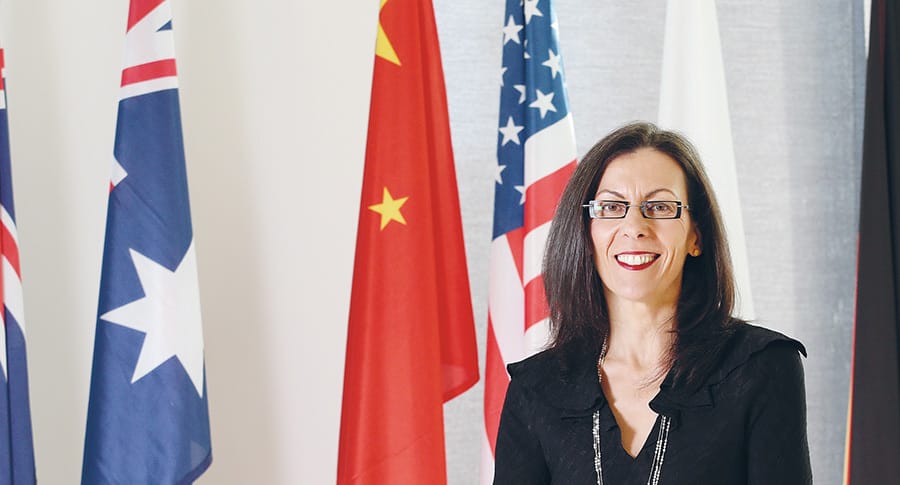
Helen Sawczak has always been fascinated by China – its language, its food and the pride with which it views its ancient culture.
“It’s an incredible paradox of a place,” she says. “Even in modern times it still maintains a strong connection to the past.”
“[Chinese President] Xi Jinping often quotes Chinese texts from 500BC. If our Prime Minister quoted Shakespeare, it wouldn’t have the same effect.”
Sawczak, who trained as a lawyer, is the National CEO of the Australia-China Business Council (ACBC), making her a key player in the increasingly significant trade relationship between Australia and its northern neighbour. Founded in 1973, a year after China and Australia re-established diplomatic ties, the ACBC works to promote economic co-operation between the two countries.
“Our future prosperity is inextricably linked with Asia,” Sawczak says. “I think that we need to think strategically and more long-term about that.”
Sawczak’s lifelong connection to China started early. The Melbourne native attended Essendon Grammar School in the 1970s, when China was opening itself to the world. In an era when many schoolchildren learned Japanese or French, her principal had the foresight to see a future in the Chinese language. Sawczak also studied German in school and Ukrainian on Saturday mornings, due to her family’s Ukrainian heritage.
Sawczak chose to study law at the University for its “innovative legal curriculum”, which focused on practical professional experience. But she also seized the opportunity to further her experience in China. In 1989, she spent her summer semester at Nanjing University, and continued to develop her Mandarin skills.
After graduating from Monash Law, Sawczak went on to work as a solicitor for MinterEllison in Melbourne and Clifford Chance in Moscow and Kazakhstan, and then moved to Alcoa as in-house counsel, where she was able to hone her skills in international trade and investment, particularly with Asia. She spent the next chunk of her career working in executive management for Australia Post and Telstra, and eventually served as head of communications at ANZ.
Sawczak became CEO of the Australia-China Business Council in 2016, after completing graduate studies in Chinese at the University of Melbourne. It’s a role she sees as especially important as Australia considers its relationship with China.
She believes universities such as Monash have a major role to play in the connection between Australia and China. “They provide an important sense of community and connection for both local students and overseas students,” she says. “They also play a role in connectivity with business and economic life, because universities contribute significantly to the domestic and global economy, and they are the source of the newest recruits entering the workforce.”





